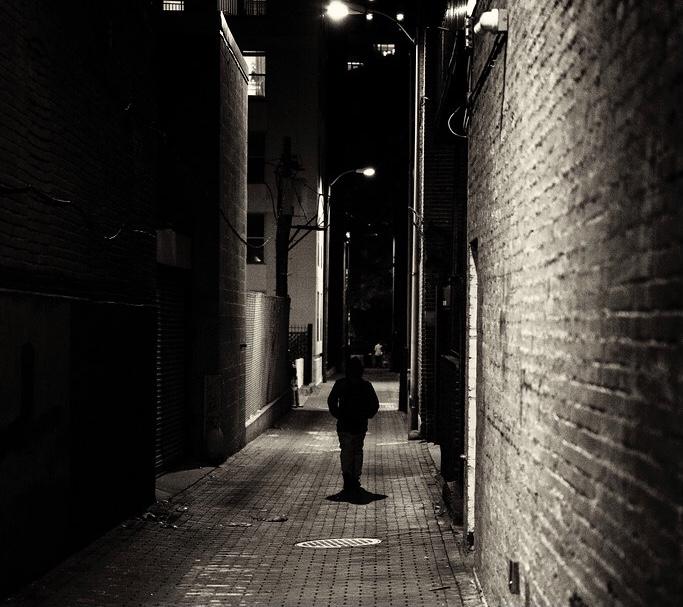Kate Kotlyar staff writer
When I was 12, my mom gave me pepper spray that I could attach to my keys “just in case.” When I hit my teenage years and started going out at night, my mom told me to always be with my brother or be accompanied by a friend because it’s easier to be safe with another person. When I started learning how to drive, my sister sent me a story of a woman nearly getting abducted at a gas station and told me to “be careful.” When I got my car, my sister told me to never sit in my car while it’s unlocked and to always check my car for anyone in the backseat, under my car or for any signs of damage for my safety.
Women are constantly told to protect themselves because of the dangers of sexual assault. But why are women frequently told to be safe and men not taught to not assault women?
According to the Rape, Abuse & Incest National Network (RAINN), in America, one out of every six women have been a victim of either an attemped or completed rape in her lifetime. This statistic is absurd.
Nine out of the nine female students interviewed for this article stated that they or someone they know were victim of some form of sexual assault or harassment by a man. Junior Taylor Kahn was nearly grabbed by a man on one of her runs, in the middle of the day.
“I take a route––I actually don’t do it anymore because of this specific reason––but on my route there is a kind of a flower shop on the way and this man runs the flower shop. Every time I would run by, he would come out and stare at me. I would look back and he’d still be looking at me,” Kahn said. “One time I was running and he came out and was in front of the flower shop before I even turned the corner. He tried to jolt at me and grab me. It really frightened me. Something like that, it just shakes you up and makes you afraid of the outside world.”
Similarly, junior Lea Ankri was “checked out” by a man at a waterpark when she was 14-years-old.
“I felt humiliated and disgusted because most of the time a girl can’t ever wear a bathing suit or anything physically revealing without being checked out by some guy or being violated by them in other forms,” Ankri said.
But it’s not even about what you wear. There is a common misconception that women are sexually assaulted when they wear “revealing clothing,” but this is not the case.
When I was 15-years-old, I was wearing an oversized hoodie and jeans, and stood at a crosswalk. There was nothing remotely feminine about my appearance, and yet a man whistled at me and called out to me as his car stood at the intersection.
It’s not about what you wear.
When women are catcalled, it makes us feel bad. It is not a compliment, it is disrespectful to us. In her most recent experience with being catcalled, senior Eva Levin was simply walking to Roxbury Park to have a picnic with her friend.
“I was feeling really good about myself, I was wearing a cute outfit and I was really, really excited to see [my friend]. When I was walking, a guy honked, and whistled at me and blew kisses at me,” Levin said as she began to cry. “That really put a damper on my day because I was having a good day and then someone came along and made me feel unbelievably uncomfortable and unbelievably violated and made me feel like I was his property.”
Women are taught a myriad of ways to keep ourselves safe against men’s advancements. For example, to carry our keys between our fingers, to carry a mace, to check our cars before we get into them, to never walk alone at night, to walk at a fast pace and even to carry a pocket knife in worst case scenarios. Senior Ava Dadvand is one of the millions of women who take these precautions.
“I’ll make myself look more masculine if I’m on a bus or walking on a dark street. I masculinize my gait, put my hands in my pockets, walk fast, and tense my jaw to make my face more masculine. If anyone speaks to me, I respond in a low voice or I don’t respond at all,” Dadvand said. “I’m always on edge when I’m alone in a public space. I get from point A to point B as fast as I can to minimize the window of time I spend alone in public.”
The Los Angeles County Department of Public Health lists numerous ways for people to protect themselves against the risk of sexual assault. But nowhere does it say to not be an aggressor and to not sexually assault.
Also, when discussing the daily struggle that women face, we cannot neglect to talk about women of color and transgender women. I am white and cisgender, and as a woman, I struggle––but not nearly as much as my non-white and non-cisgender counterparts.
Throughout history, there has been a hypersexualization of Black women. This hypersexualization can be traced as far back as the mid-1400s, when Europeans began enslaving Black people. This disgusting reality is simply an excuse of the dehumanization of women of color. According to a study done by The National Online Resource Center on Violence Against Women (VAWnet), approximately one out of five Black women reported that they have been raped in their lifetime.
According to the Human Rights Campaign (HRC) in a 2015 survey, 47 percent of transgender people are sexually assualted in their lifetimes. And amid transgender people of color, 65 percent of American Indians, 59 percent of multiracial people, 58 percent of Middle Easterners and 53 percent of Black people were most likely to have been sexually assualted in their lifetimes.
These statistics are absurd.
Recently, I have seen the phrase “Not All Men” sweep through the internet in response to women’s overgeneralizations. Men, we get it. Not every single man is a rapist or a predator. We get it, men are victims of sexual assault, too. According to RAINN, one out of every 10 men are victims of rape. We understand.
But men, what you need to understand is that while not all men are rapists, virtually all women are victims of sexual assault. Society has made men believe that men are supposed to be respected while women are the respecters.
According to a survey sent out by the Pew Research Center in 2018, Americans are more likely to associate the characteristic of power positively with men and negatively with women. “Provider” was only used to characterize men. Society teaches us that men are the “strong” gender of our species and are meant to “provide” for females.
This is absurd. This is disgusting. And most importantly, this isn’t true. My own mother is a great example of this, she is a single mother who struggled through a divorce and now provides for her children.
Women are strong. Women are providers. Women need to be respected.
Sexual harassment is a real issue and a continuous one when talking about female struggles. It is appalling to me that after over 200,000 years of the modern human’s existence, sexual harassment is still a prevalent issue through society. We, as a society, need to do better.
Men need to do better.





























